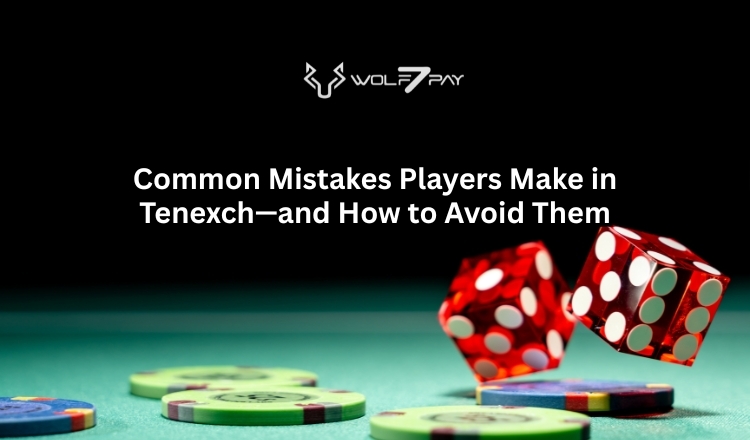It is normal to make mistakes in every game however when it comes to platforms that require skill in which every move counts tiny mistakes can have a major impact. Many players get into the game with a sense of excitement but, without the proper method or a sense of the right amount of patience, they get into traps that are predictable. Knowing these mistakes and understanding ways to stay clear of them will change your experience overall and increase your increase your chances of success.
1. Playing Without Understanding the Rules Properly
One of the biggest mistakes that new players make is jumping in without understanding the fundamentals. Rules have a purpose. They provide the basis for strategies. The players who do not learn about or are only able to grasp the basics frequently make rash decisions that lower the odds of winning.
How to stay clear of this: Spend time observing matches and analyzing the way in which games play. Study the rules thoroughly, what actions result in gains and losses, what actions should be avoided and what timing can affect the result. An understanding of the fundamentals provides you with assurance and clarity in every decision.
2. Ignoring the Importance of Timing
In a fast-paced, competitive environment the timing of actions is crucial. Certain players react too quickly and others wait until the chance is gone. Both can lead to negative outcomes. The trick is to know the right time to take action and when to rest.
How to prevent this: Practice reading the pattern that the sport follows. Look at the best players and note the speed at which they make precise decisions. Learn to be patient and identify the ideal moment to make a move.
3. Letting Emotions Take Over
Another error is allowing emotions, particularly frustration or overconfidence to control your actions. If a player loses their focus after a setback they'll take impulsive actions. However when they're on losing streak, players could be reckless. Both can lead to unavoidable loss.
How to prevent the problem: Maintain a calm attitude regardless of the circumstances. Make breaks when you feel that pressure is building. The ability to control your emotions separates the reliable players from the inconsistent.
4. Not Adapting to Changing Game Conditions
Every time, the process is different. What worked one time might not be effective again. The players who stick to a certain approach for the entire time will eventually be defeated. The ability to change and adapt is vital to long-term success.
How to prevent the problem: Keep an open mind. Review each round in a separate manner instead of repeating previous moves without thinking. Flexibility lets you be flexible and ready for any change in the game's flow.
5. Overlooking Observation and Analysis
A lot of players base their decisions solely on their beliefs instead of paying attention to the world around them. The ability to observe is the key ingredient that distinguishes excellent players from those who are great. In games such as Tenexch the ability to read patterns, anticipating reactions, and interpreting signals are crucial to succeed.
How to prevent It: Slow down and pay attention. Keep a mental note of the behavior of your adversaries and the way they play. Be able to predict their next move and not react too late. The more you watch how you can plan your strategy, the better are.
6. Playing Without a Clear Plan
Involving yourself in a game with any form of structure or objective can cause confusion. It's possible to act in a way that is not rational. If you don't have a plan it's easy for you to lose track of progress and make repeat mistakes.
How to prevent the problem: Start every round by establishing a basic plan for when to play with a vengeance and when to defend and what your options for fallback are. A clearly defined plan provides direction and minimizes the chance of making mistakes.
7. Neglecting Practice and Skill Development
Experience doesn't come overnight. Some players believe that they've learned all the basics after just a couple of wins, but constant practice will help refine their the player's instincts. Without continual learning, progress slows down and mistakes begin to repeat.
How to prevent It: Make practice a regular element of your schedule. Review previous matches, note the areas where you made mistakes and then focus on those weak spots. The more you train and practice, the more precise your decision-making skills become.
8. Failing to Manage Risk
Many players struggle with the balance of risks and rewards. They may play too cautiously or risk their lives for big rewards. Both can be detrimental to the performance of a player. A well-planned risk management strategy is the most important quality for skilled players of the Tenexch.
How to prevent the issue: Evaluate every decision. Consider whether the possible outcomes are worth taking the chance. Be able to evaluate probabilities, and stay away from relying on luck. The most skilled players know when they should gamble and when to step away.
9. Ignoring the Learning Curve
New players are often looking for immediate results. They look up to experienced players and get frustrated when they do not get the results as fast. The impatience can lead to impulsive decisions and ultimately burnout.
How to prevent the problem: Respect the process. Every professional started out as a novice. Concentrate on enhancing your game instead of looking for immediate results. Slow, steady progress leads to long-lasting success.
10. Not Keeping Track of Performance
It's shocking how many athletes don't review their performance after every game. In the absence of reflection, it's hard to spot patterns or errors. As time passes, this lack of awareness will become a significant obstacle.
How to prevent the problem: After every session take note of your wins and losses, and the reasoning that led to them. Examine the things that worked and those that did not. Reviewing can help to avoid repeating the same mistakes and improves your approach for the future.
Why Avoiding Mistakes Matters
Avoiding common mistakes isn't just about saving money, but controlling your behavior and achieving consistency. The more conscious you are of your routines the more well-equipped you'll be to tackle the challenges with aplomb. Every mistake you avoid will lead to smoother performance and smarter gaming.
The path to success isn't based on luck or chance. It comes from determination, persistence and self-discipline. When you recognize your weaknesses and fixing them before they become a problem you can distinguish yourself from the rest of the players who don't take the time to get better.
The end goal is mastery. isn't about perfectionism, it's about continuous improvement. If you are able to identify and correct these common errors and mistakes, you'll not only be able to be more efficient but also relish the experience more. The distinction between good and excellent players is in their awareness, flexibility and desire to be a student.


